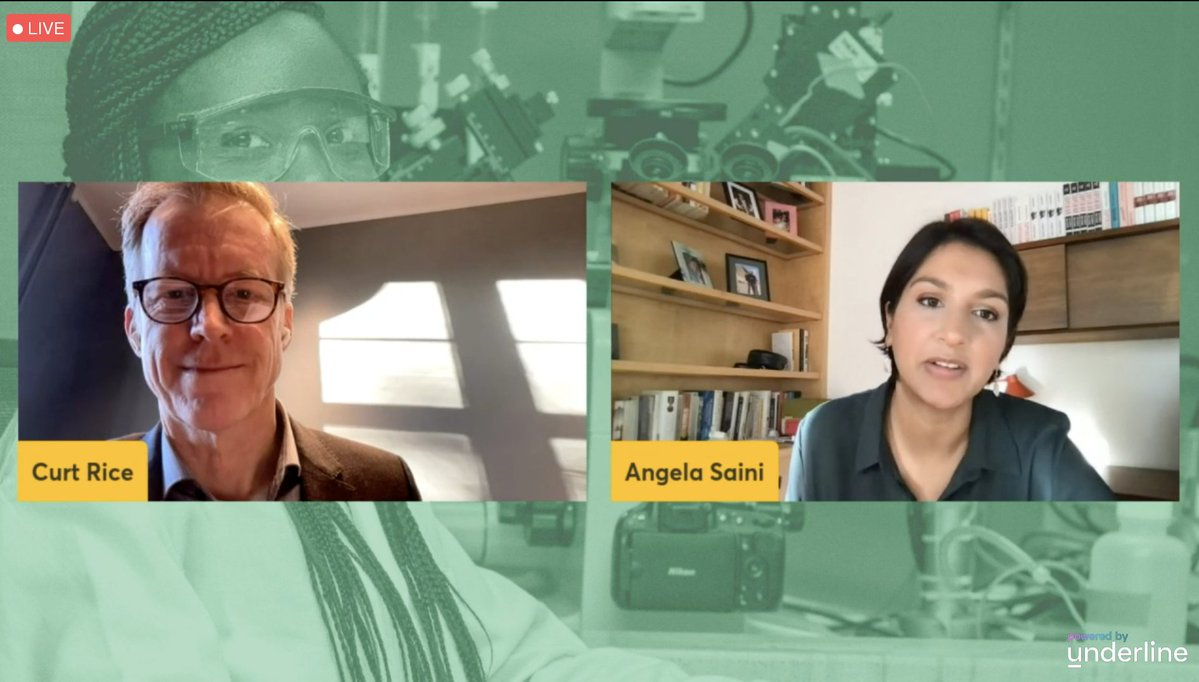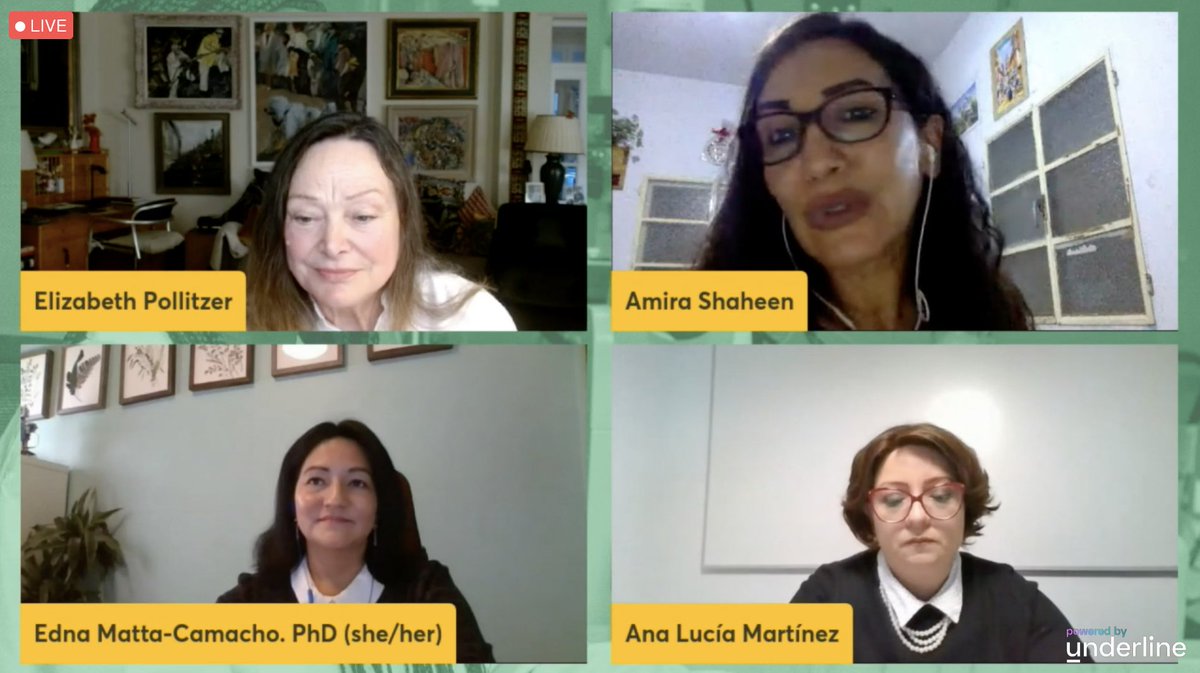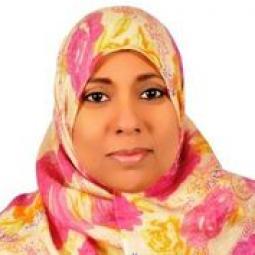OWSD Assembly Day 8: Scientists from the global south discuss attitudes to gender
December 07, 2021
Day 8 of the OWSD General Assembly and International Conference began with a conversation on attitudes to gender differences in scientific research. The conversation was held between Angela Saini, internationally renowned author of Inferior: How Science Got Women Wrong and Superior: The Return of Race Science, and Curt Rice, Rector of the Norwegian University for Life Sciences and the Chair of Norway’s Committee on Gender Balance in Research.
How science got women wrong: a synopsis
Saini described how western science, over many centuries, used the differences between the sexes to justify the belief that women were not intellectually equal to men, leading to the exclusion of women from science academies such as the Royal Society of London and the French Academy of Sciences. Scientists argued that sex differences were hard-wired and that women were different and weak and inferior in every possible way, and even that women were lower down the evolutionary ladder than men. This kind of thinking extended to race and only began to change  from the middle of the twentieth century, particularly as women became professors themselves and began to challenge these ideas. Angela said some academics continue to hold the view that women are underrepresented in the sciences because they inherently think differently. Rice concurred, saying that even in Norway, known as one of the most gender-equal societies in the world, he had had a conversation with a prominent journalist who said that more men win Nobel prizes than women because they make bigger contributions to science than women.
from the middle of the twentieth century, particularly as women became professors themselves and began to challenge these ideas. Angela said some academics continue to hold the view that women are underrepresented in the sciences because they inherently think differently. Rice concurred, saying that even in Norway, known as one of the most gender-equal societies in the world, he had had a conversation with a prominent journalist who said that more men win Nobel prizes than women because they make bigger contributions to science than women.
Saini said abuse, sexual harassment and discrimination push women out of scientific research. Women that stay in scientific research are denied accolades often because their male supervisors have claimed achievements for themselves. She pointed out that not all parts of the world struggle with equal representation of women in science. In Asia and South America and parts of the Arab world, for example, women are represented in science to a far greater extent than in the West. Angela said that in the West where women face disadvantages, these are treated as a women’s issue to be resolved by women.
Rice shared his experience of using policy to influence the representation of women in science research institutions in Scandinavia. He also talked about successfully encouraging diversity in the leadership of centres of excellence at Norwegian universities.
Nobody is too good to lose
Saini and Rice discussed discrimination against women in prize-giving practices in science. Saini said it has taken time for institutions to acknowledge discrimination as a real issue because these institutions consider that science is a meritocracy. She said there are not enough dispute resolution mechanisms available for women to turn to when they face harassment, discrimination, abuse and other unfair practices, particularly at universities. Universities, she said, will often tell women who complain to leave, while the abuser remains in their position. “We need to prove our commitment to equality in the sciences… by calling out bad behaviour and not tolerating it in the name of genius… by saying that someone is too good to lose. Nobody is that important.” When universities protect racists, sexist people, abusers, harassers and people with deep prejudices in their positions, Saini continued, they also sacrifice other people who could be working with or around them, who could also be geniuses in their own right.
Framing gender mainstreaming in science
Elizabeth Pollitzer joined the conversation. Pollitzer is the founder and director of Portia, a UK-based not-for-profit organization focused on improving gender equality in science practice and integration of gender dimension in science knowledge. She is also the founder and director of the Gender Summit platform, which brings scientists, gender scholars and policymakers together to examine research evidence showing the influence of sex-gender factors in research results and in outcomes for women and men. She said that her work in mainstreaming gender in scientific research is evolving. It is no longer simply about increasing the numbers of women in science but about including women from all kinds of backgrounds, including immigrant women scientists. She said the gender discussion must be framed differently for different audiences: for politicians the argument must be about opportunities and markets; for academia, about excellence in science, that gender equality in science directly affects the quality of scientific research. She spoke about the need to decolonise knowledge and to define academic freedom.
Moderator Tonya Blowers joined the panel and asked how men can be included men in the discussion about supporting women in science. Saini said one way was for men to encourage their daughters into science as her father did for her. Pollitzer suggested that universities train male scientists in gender issues and then send them out to conduct outreach in schools. She recommended that scientists doing outreach should frame science careers around big issues like climate change to get young people’s attention.
 Gender mainstreaming in the Global South
Gender mainstreaming in the Global South
Pollitzer then moderated the final panel of the day on the importance of diversity for excellence in science. On the panel were Ana Lucía Martinez Abarca, Professor and Chair of Bioethics in Human Medicine at the University of the Americas in Ecuador, Edna Patricia Matta-Camacho from Colombia who is now an Assessment Officer at Health Canada, and Amira Shaheen from Palestine, a researcher on women’s mental health in relation to gender-related violence. With the exception of Matta-Camacho, the panelists agreed that gender mainstreaming was still not being taken as seriously as it should in their countries. They discussed patriarchy in scientific institutions and gender bias in scientific research. Shaheen recommended that research funders and university ranking initiatives should require universities to demonstrate a commitment to gender equality. Martinez Abarca said that academia and science are still male-dominated and violent places. She said women networking is one way that women can empower themselves.











































